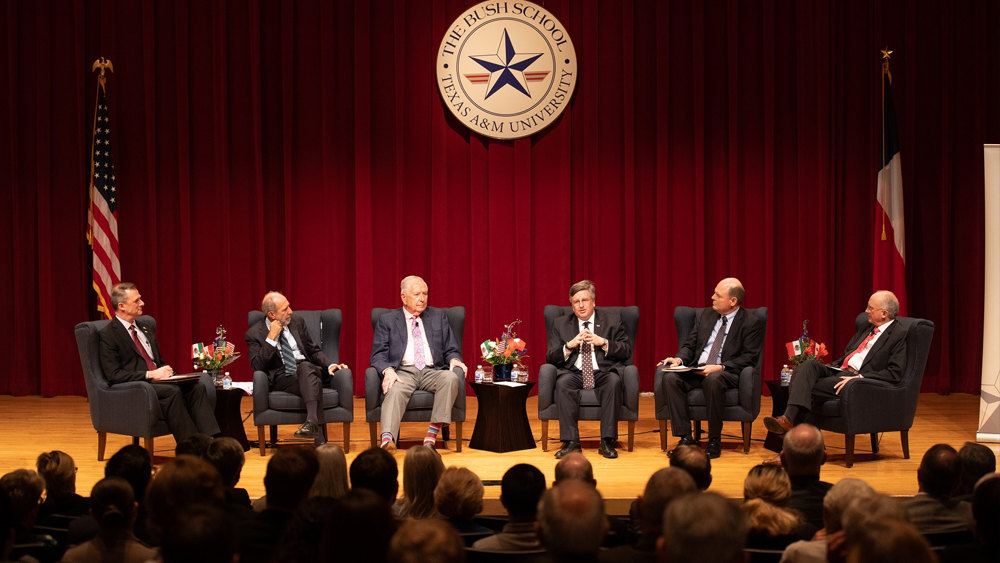
On February 27, a distinguished group of panelists gathered to discuss the future of free trade in North America. The main speaker was Dr. Jaime Serra Puche, the lead negotiator of the North American Free Trade Agreement (NAFTA) for Mexico. Following his remarks, Drayton McLane Jr., Chairman of the McLane Group; Douglas George, Acting Consul General of the Consulate General of Canada; Jeffrey Jones, former Senator and Undersecretary of Agribusiness Development in Mexico; and Matthew Rooney, Managing Director of the Bush Institute-SMU Economic Growth Initiative, joined him on stage for further discussion and questions moderated by Dr. Raymond Robertson, Director of the Mosbacher Institute. The event was cohosted by the Mosbacher Institute for Trade, Economics, & Public Policy and the Mays Business School Center for International Business Studies.
The evening began with a video of President George H. W. Bush speaking to a 1998 Bush School class praising NAFTA and giving Jaime Serra Puche enormous credit for its successful adoption. A common thread throughout the evening’s commentary was the importance of free trade, support for the successes achieved by NAFTA, and the benefits to all three countries of regional cooperation in a competitive global economy. Dr. Serra’s presentation included a number of graphs indicating the complementary nature of North American economic data and showing how many of the three countries’ economic indicators tend to rise and fall together. The symposium also focused on the United States-Mexico-Canada Agreement (USMCA), which may replace NAFTA, with some differences of opinion as to its strengths and weaknesses. The consensus of the panel was that USMCA is a step backwards—not forwards—from NAFTA and is unfortunately marked by economic protectionism. However, it was made clear that no free trade agreement among the countries would be the worst possible outcome and that the USMCA should be ratified. The panelists agreed that the tendency to blame trade deficits on free trade is inaccurate and that the United States’ trade deficit cannot be decreased by increasing tariffs. They said a more effective step would be reducing the federal debt.
Before the symposium, Dr. Serra met with a group of Bush School students to discuss their questions on free trade and the future of NAFTA. This event touched on the cruciality of free trade and the importance of being neighborly on a global scale. Dr. Serra also stressed that the United States, Mexico, and Canada should all be on the same side of the negotiating table because a strong regional economy is in the best interest of everyone.







